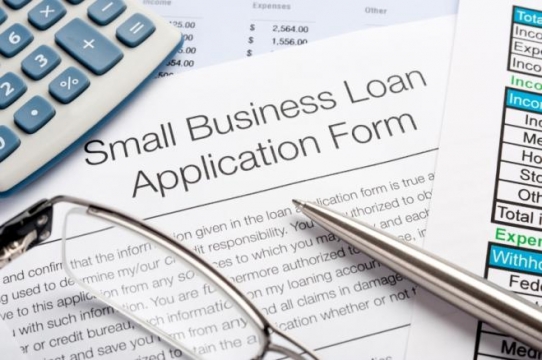
2. Traditional Banks
Small business loans are available from banks, as are conventional bank loans. Small business loans from traditional banks will have restrictive terms that will determine how you spend the money, conventional (personal) loans will give you more freedom to spend the money as you see fit. They charge lower-interest rates, and the approval process is faster than small business loans. The downside us using personal loans is that you are personally liable for repaying them and the repayment period is often shorter than with small business loans. Also beware of any balloon payments that can pop up along the way.
3. Small Business Administration Loans
The Small Business Administration offers several programs to help finance business loans for small businesses. The government does not directly lend to small businesses but they set lending guidelines for partner institutions like community development organizations, microlenders, and banks. The Small Business Administration guarantee will cover around 75 to 90 per cent of your loan, so the lender is taking a lot less risk in loaning money to you. The repayment terms are also more attractive for borrowers (longer payment options), but this means more paperwork, fees, and a waiting period for approval.
Types Of Loans Available
- Equipment loans. This kind of loan will also allow you to pay for your office equipment, like computers, copy machines, cars, and tools. Instead of buying them all straight out, you can pay for all of them in one convenient monthly payment. This loan is easy to get whatever equipment you buy serves as collateral for your loan.
- Franchise startup loans. If you want to open a franchise, this is the simplest means to get a loan. You can use the funds as working capital, to pay for your franchise fees, purchase equipment and build your store.
- Credit Lines. If you think that you need a little help with your business’ day to day expenses or a small push for your business, you can request for a line of credit. You will only pay for what you use, and they give you a longer repayment period. This can help you build your credit score if you make your payments on time. However, delays and nonpayment can get you in trouble of getting into more debt.
- Merchant cash advance. This loan will be based on the volume of your business’ monthly credit card transactions. You can usually get 125% advance of your monthly transaction volume and can be repaid by either a daily deduction from the account or a percentage of the transactions per day. If your business is paid for through a lot of credit card transactions, then this is a convenient loan but keep in mind that the interest for this type of loan can get as high as 30%.
- Professional practice loans. If you are in the legal, accounting, health care, veterinary, architectural and engineering industry, there are loans specific to your industry. This loan can help you buy a practice, renovate your offices, refinance your debt or help update your equipment.
- Working-capital loan. This is a good short term solution to help run your operations. This can assist you with small projects designed to help you increase your revenue. Be warned that the interest rates for this loan can be high as well.
Types Of Loans Available From The SBA
- 7(a) loan program. As the SBA’s primary loan program is the most flexible, and the most commonly applied for. You can use this loan for property acquisition, purchase of equipment, purchase of furniture and renovation, construction or expansion of your business. You can borrow up to $5 million, and loan maturity is usually up to 10 years for capital and 25 years for fixed assets.
- Disaster loans. This low-interest loan will help you repair any damage brought about by a catastrophe. You can borrow up to $2 million, and pay a relatively low interest.
- Microloan. New or small businesses can borrow a small amount of money you can use as working capital. You can’t use this loan to buy real estate or pay off other loans. You can take up loans up to $50,000, with an average loan of $13,000, and pay a maximum period of 6 years. Terms will vary depending on your situation and the purpose of the loan.
- Real estate and equipment loan. This is the CDC or 504 programs will give you fixed-rate, long-term financing for your business’ major assets. Usually, the SBA will provide 40% of the cost, 50% for the lender, and 10% for the borrower. You can use this loan to buy a building, land or machinery. You can also use this to renovate, refinance expansion-related debt for as much as $5.5 million with a 10 to 20 year maturity period. Working capital and inventory purposes are not included in this loan.
Disclaimer: Our service is not intended to be, nor should it be construed as financial advice. We help our readers make informed decisions via impartial information and guides. Where appropriate, we may introduce partner companies who can provide services relating to financial products.